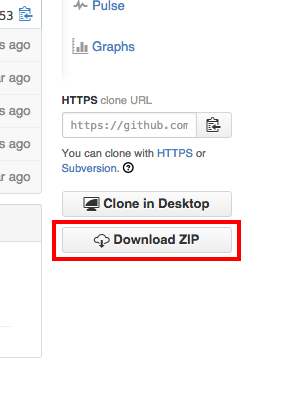Introduction
This SDK is deprecated since X-Cart 5.3.4. X-Cart command line tool is the direct replacement with the similar features.
X-Cart SDK is a collection of macros that ease X-Cart 5 development. This article explains how to obtain X-Cart SDK and how to use its macros.
Obtaining X-Cart SDK
Download X-Cart SDK from https://github.com/xcart/next-sdk repository. If you are not familiar with GIT, you can simply download it as .zip archive.

Unpack it to the directory near to X-Cart's one. For instance, if your X-Cart lives in
~/www/xcart/folder, then put your SDK's folder as~/www/next-sdk/.Run macros from the X-Cart's folder, e.g.Â
./../next-sdk/devkit/macros/create-module.php --module=Test\\TestNote: this macro call will create module with developer ID Test and module ID Test.
Notes
If you are using Mac and PHP is run as a part of MAMP, you may need to run the script asÂ
/Applications/MAMP/bin/php/php5.4.10/bin/php ./../next-sdk/devkit/macros/load-yaml.php path/to/yaml/file/install.yamli.e. you need to explicitly call MAMP's PHP binary instead of relying on default PHP binary.
Macros
The most actual information about how to run macro can be found by calling it with --help parameter, e.g.
./../next-sdk/devkit/macros/create-module.php --help
Let us take a closer look at macros available.
Creating module
Call this macro as:
./../next-sdk/devkit/macros/create-module.php --module=DeveloperID\\ModuleID
--module parameter must be passed and contain module's developer and module IDs separated by \\ characters.
Aside from that, you can specify the following parameters:
--hasSettingsthat will automatically mark this module as having settings (you will need to specify these settings additionally later on)--version=5.1Âin case you want to explicitly specify module's major version
Creating page
Call this macro as:Â
./../next-sdk/devkit/macros/create-page.php --module=Tony\\PageDemo --target=tony --interface=admin
Mandatory parameters:
--moduleparameter defines what class will have the page you are creating;--targetparameter defines what target this page will be accessed by;--interfaceparameter defines whether you create admin or customer page;
You can also specify --menu parameter in order to automatically insert new page to some menu in admin area.
The result of this macro call will be creation of the controller class, viewer class and template file. If --menu parameter is passed, then one more viewer class will be created in order to insert a link to this page into a menu.
In case of example macro call, the following files will be created:
<X-Cart>/classes/XLite/Module/Tony/PageDemo/Controller/Admin/Tony.php<X-Cart>/classes/XLite/Module/Tony/PageDemo/View/Page/Admin/Tony.php<X-Cart>/skins/admin/en/modules/Tony/PageDemo/page/tony/body.tpl
Decorating class
Call this macro as:
./../next-sdk/devkit/macros/decorate.php --module=DeveloperID\\ModuleID --class=classes/XLite/Path/To/File.php
--class parameter must be passed and it defines what class is going to be decorated in the module passed in the --module parameter. You should specify a path to a file starting with classes/ directory.
--module parameter must be passed and contain module's developer and module IDs separated by \\ characters. This parameter will define what module will contain decorated class defined in the --class parameter.
ExampleÂ
./../next-sdk/devkit/macros/decorate.php --module=Tony\\DecoratorDemo --class=classes/XLite/View/Minicart.php
After running this command, the macro will create <X-Cart>/classes/XLite/Module/Tony/DecoratorDemo/View/Minicart.php file that will define a class that decorates the \XLite\View\Minicart one.
Loading YAML file
You can use this macro in case you need to load YAML file without uninstalling/installing back your module.
Call this macro as:
./../next-sdk/devkit/macros/load-yaml.php path/to/yaml/file/install.yaml
Your YAML file must be located at the path/to/yaml/file/install.yaml path you pass to macro.
There is an alternative way to load YAML file, if you prefer not to use X-Cart SDK.
Making demo dump for performance tests
In case you want to test your module or whole X-Cart's performance and you want to fill your database with dummy data, you can use this script.Â
Call this macro as follows:
./../next-sdk/devkit/macros/generate-dump-etalon.php
You can specify following parameters:
--categoriesdefines how many categories will be specified per category tree level. Default value: 10;--depthdefines the depth of category tree. Default value: 1. If--depth=1and--categories=10, then the macro will create 10 root categories. If--depth=2and--categories=20, then the macro will create 20 root categories and each of them will contain 20 subcategories resulted in 400 categories, and so on;--categoryImageif this option is specified, then each category will have its own image;--featuredProductsspecifies how many featured products will be in each category including home page. Default value: 20;--productsdefines number of products per category. Default value: 20;--attributesdefines number of attributes per product. Default value: 0;--optionsspecifies number of product options per product. Default value: 0;--optionValuesspecifies number of option values per product option. Default value: 0. If you have a product with following options: color (White, Grey, Black), size (S, M, L), then you can replicate this configuration by specifyingÂ--option=2 --optionValues=3;--productImagesdefines number of product images per product. Default value: 1;--wholesalePricesdefines number of wholesale prices per product. Default value: 0;--ordersdefines number of orders in a test dump. Default value: 1000;--orderItemsdefines number of products per order. Default value: 0.
Example of a macro call that will create 10 root categories with 10 subcategories for each root category (resulted in 100 categories). Each category will have an image and 30 featured products. Each category will contain 100 products (resulted in 10 000 products). Each product will have 8 attributes, 5 of them allows selection (product option) with 3 choices (resulted in 80 000 attributes and 150 000 option choices). Each product will have 3 product images and 4 wholesale prices. Besides that the demo dump will contain 5000 orders with 3 products per order.
./../next-sdk/devkit/macros/generate-dump-etalon.php --categories=10 --depth=2 --categoryImage -featuredProducts=30 --products=100 --attributes=8 --options=5 --optionValues=3 --productImages=3 --wholesalePrices=4 --orders=5000 --orderItems=3
Note: you do not specify user number explicitly. You will have the same number of users as number of orders.
Attachments:
- git-download-zip.png (image/png)